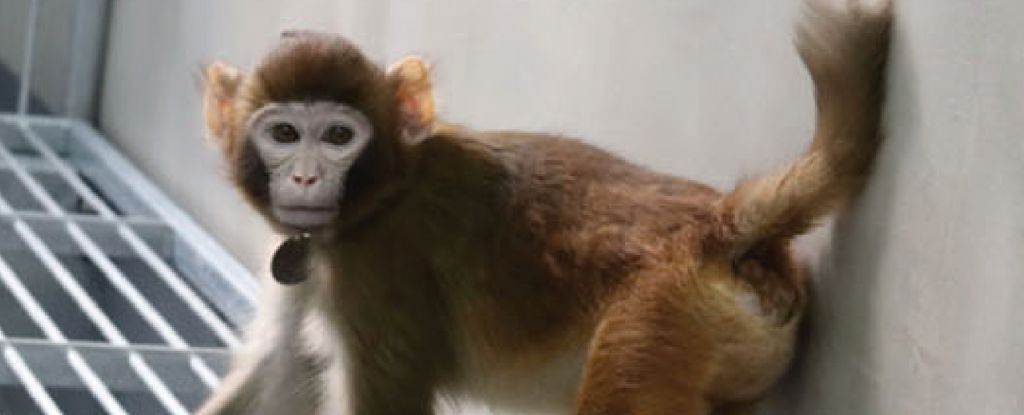Researchers in China are forging ahead with their controversial attempts to clone primates, and now, a team at the Chinese Academy of Sciences (CAS) claims one of their cloned monkeys has lived more than two years.
That would be the longest any cloned rhesus macaque (Macaca mulatta) has survived yet.
Of all cloned macaque embryos implanted into a womb, nearly half have died around the 60th day of gestation. While some clones have reportedly lived for weeks or months, many others survive for just hours or days if they make it out of the womb at all, largely because of gene expression issues during development.
The two-year-old male macaque is a hopeful exception. It was developed in China using a new method, which was designed to improve the outcomes of a cloned embryo’s developing placenta.
As a fetus grows and changes, the genetic expression profiles of its placenta are supposed to change with it. But among cloned fetuses, the placenta does not always seem to be expressing the right genetic profiles at the right time.
The team has now figured out a way to improve the survival outcomes for their animal models.
The problem appears to derive from the somatic cells of the cloned embryo. More specifically, it was the cells of the embryo’s outer trophoblast layer, which provides the developing embryo with nutrients, and later form a large part of the placenta post-implantation, that were shown to be dysfunctional or defective in the placenta later on.
To counter these flaws, researchers carefully embedded the inner layers of the cloned embryo into the trophoblast of a non-clone before implanting this hybrid embryo, thereby “rescuing” its development.
This trophoblast replacement method works by injecting the inner cell mass from a cloned embryo into a second non-cloned embryo formed through an in-vitro process. This gives the ‘hybrid’ embryo a trophoblast that belongs to a non-clone.
The initial cloned embryo was made by a process called somatic cell nucleus transfer (SCNT), which replaces the nucleus of an egg cell with the somatic (body) cell and DNA of another individual.
SCNT is the same advanced method that created the first ever cloned animal in 1996, Dolly the Sheep, and while it’s been successful among pigs, dogs, mice, cattle, and rabbits, it’s a lot harder to achieve with a primate. Only in 2018 did scientists at CAS create Zhong Zhong and Hua Hua, two clones of a crab-eating macaque (Macaca fascicularis), using SCNT.
While the success rates and lifespans of cloned macaques have improved over the years, these lab monkeys rarely live long. As expected, that has led to some sticky ethical conversations around the whole field of research at an international level.
Proponents of primate cloning argue that the possibility of twin studies among close human relatives would be highly valuable as a model of disease. Skeptics argue that such results are not assured and that the dangers to animal well-being are too high.
Scientists at CAS claim to be following international ethical guidelines, and their research, which is fully legal in China, has continued unabated since 2018.
While the trophoblast replacement method has produced a living, healthy, two-year-old monkey, it took a lot of trial and error to get there.
The team achieved just one live fetus for every 113 activated SCNT embryos. Of all 11 embryos they transferred to a womb, only one produced a live fetus.
That might sound low to some, but the team at CAS are spurred on by their results.
“This strategy holds great promise for improving the success rates of by addressing issues specifically related to the trophectoderm, which plays a crucial role in early embryonic development and implantation,” the team writes.
Beyond cloning research, the team’s trophoblast replacement method could also have implications for conventional IVF.
If human embryos with abnormalities or deficiencies in cells of the trophoblast can be rescued with this method, it could increase the potential for successful pregnancy outcomes.
But such future possibilities require a lot more work, and that will inevitably demand the death of more animals.
Some experts have warned this sort of research puts the world on a slippery slope, where even the most intelligent animals become nothing more than objects to humans, with no moral weight.
Scientists at CAS are continuing their investigations in this field, whether the rest of the scientific community likes it or not.
The study was published in Nature Communications.





